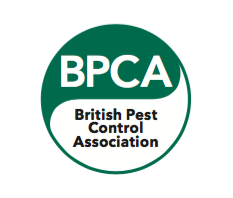What does snow mean for pests?
In Pests
Parts of the UK have been subject to snow, sleet and heavy rain in the past few weeks. This in turn has caused flooding, disrupted transport systems and forced many pests to seek shelter in buildings. While it is usual in Winter to see a rise in rodents entering our homes, the recent extreme weather is likely to see ever more increasing numbers take advantage of our warm and dry properties to nest and breed.
The most common Winter pests in the UK are:
- Mice
- Rats
- Squirrels
Rats & mice
As we have mentioned, this time of year can lead to an increase of rodent activity within homes. The colder weather makes our homes an inviting destination for rats and mice alike. Rats are extremely adaptable, and are adept at exploiting human sources for nesting and food. When extreme weather like snow hits, they are the first to take advantage of human resources to survive. Similarly, mice will be driven indoors due to the lack of food sources during wet and cold weather. They tend to store food and will nest in close proximity to known food supplies as might be found in your kitchen or in your garden.
Rodent infestations can also be caused or exacerbated by the disruption of bin collections during extreme weather. Heavy snow or ice can cause the cancellation or postponement of collections. This can lead to a build up of rubbish, an easy and accessible food source for rats in particular. Bird-feeding can also attract rats and mice who will look for alternate food sources to survive during the cold months.
Squirrels
Squirrels are also a nuisance during cold and wet weather. A male squirrel will have several nesting areas or ‘dreys’ within its territory and in the colder months lofts and attics make ideal locations for dreys. When squirrels enter a loft space, they can cause structural damage by tearing up loft insulation for bedding. They can also pose a fire hazard by stripping insulation from electrical wiring or chewing through cabling. They are also very noisy, and if they drown in uncovered water storage tanks they can contaminate the water supply. For these reasons, it is important to keep squirrels out of your loft.
In the UK, if a grey squirrel is caught, it s an offence to release them back into the wild. Squirrels can also become aggressive if they feel threatened. If you catch a squirrel or think you have a squirrel infestation, contact a professional pest control company rather than trying to deal with the issue yourself.
Prevention
- Bird feeding can be a food source for rodents – make sure bird feeders are kept above ground level and try to prevent any bird feed debris falling on the ground.
- Keep gardens clean and tidy – this removes potential nesting sites.
- Keep food stored in airtight containers. This includes pet food – if stored outside, make sure it kept in an air sealed container stored above the ground.
- Keep your bins sealed and away from your home.
- If you have a compost heap, avoid putting food in it and try to store it above the ground if possible.
- Block up any holes. For many properties (particularly, flats and terraced houses) it is worth investing in professional proofing.
- If you encounter evidence of rodents in your home, act immediately – call a reputable pest control company.
Signs of a rodent infestation:
- Evidence of droppings
- The smell of urine or areas which are stained and could be attributed to urine.
- Evidence of gnawing or nesting
- Scratching noises – squirrels and rats will mostly nest in the loft/attic areas and use cavities for movement in and around the house.
What to do if you think you have a rodent infestation:
If you think you may have an infestation, or would like some advice, call us on 0330 100 2811 or email us at services@pestuk.com. Our technicians can visit your property and can assess for points of entry, food sources and possible nesting areas and can lay poison bait to humanely deal with rodents
PESTUK

PESTUK are full members of the BPCA, the governing body for pest control in the UK. Using a BPCA member company ensures you have a qualified, fully insured company treating your pest problem. With PEST UK you can have peace of mind knowing that you are dealing with a professional pest control service that is near you.
Call us on 0330 100 2811 or email us at services@pestuk.com for free local pest control advice or to book an appointment for pest control services near you.
PESTUK also have offices in Bracknell, Edgware, Salisbury, St Albans, Stevenage, Swindon, Thame, Wantage, Ware, and Watford.
For an updated price list for all of our services please click here.


